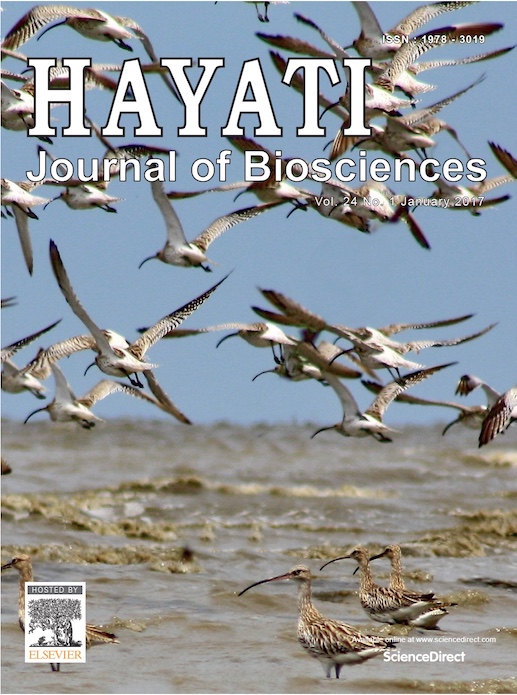Metagenomic Survey of Potential Symbiotic Bacteria and Polyketide Synthase Genes in an Indonesian Marine Sponge
Abstract
There has been emerging evidence that the bacteria associated with marine sponges are the key producers of many complex bioactive compounds. The as-yet uncultured candidate bacterial genus “Candidatus Entotheonella” of the marine sponge Theonella swinhoei from Japan have recently been recognized as the source of numerous pharmacologically relevant polyketides and modified peptides, as previously reported by the Piel group (Wilson et al. 2014). This work reported the presence of “Candidatus Entotheonella sp.” in the highly complex microbiome of an Indonesian marine sponge from Kapoposang Island, SouthSulawesi. We further identified the Kapoposang sponge specimen used in this work as Rhabdastrella sp. based on the integrated morphological, histological, and cytochrome oxidase subunit I (COI) gene analyses. To detect the polyketide biosynthetic machinery called type I polyketide synthase (PKS) in this Indonesian Rhabdastrella sp., we amplified and cloned the ketosynthase-encoding DNA regions of approximately 700 bp from the uncultured sponge's microbiome. Further sequencing and analysis of several randomly chosen clones indicated that all of them are mostly likely involved in the biosynthesis of methyl-branched fatty acids. However, employing a PKS-targeting primer designed in this work led to the isolation of four positive clones. BlastX search and subsequent phylogenetic analysis showed that one of the positive clones, designed as RGK32, displayed high homology with ketosynthase domains of many type I PKS systems and may belong to the subclass cis-AT PKS group.Downloads
HAYATI J Biosci is an open access journal and the article's license is CC-BY-NC. This license lets others distribute, remix, tweak, and build upon author's work, as long as they credit the original creation. Authors retain copyright and grant the journal/publisher non exclusive publishing rights with the work simultaneously licensed under a https://creativecommons.org/

























.png) IPB University
IPB University Department of Biology
Department of Biology The Indonesian Biological Society
The Indonesian Biological Society 

